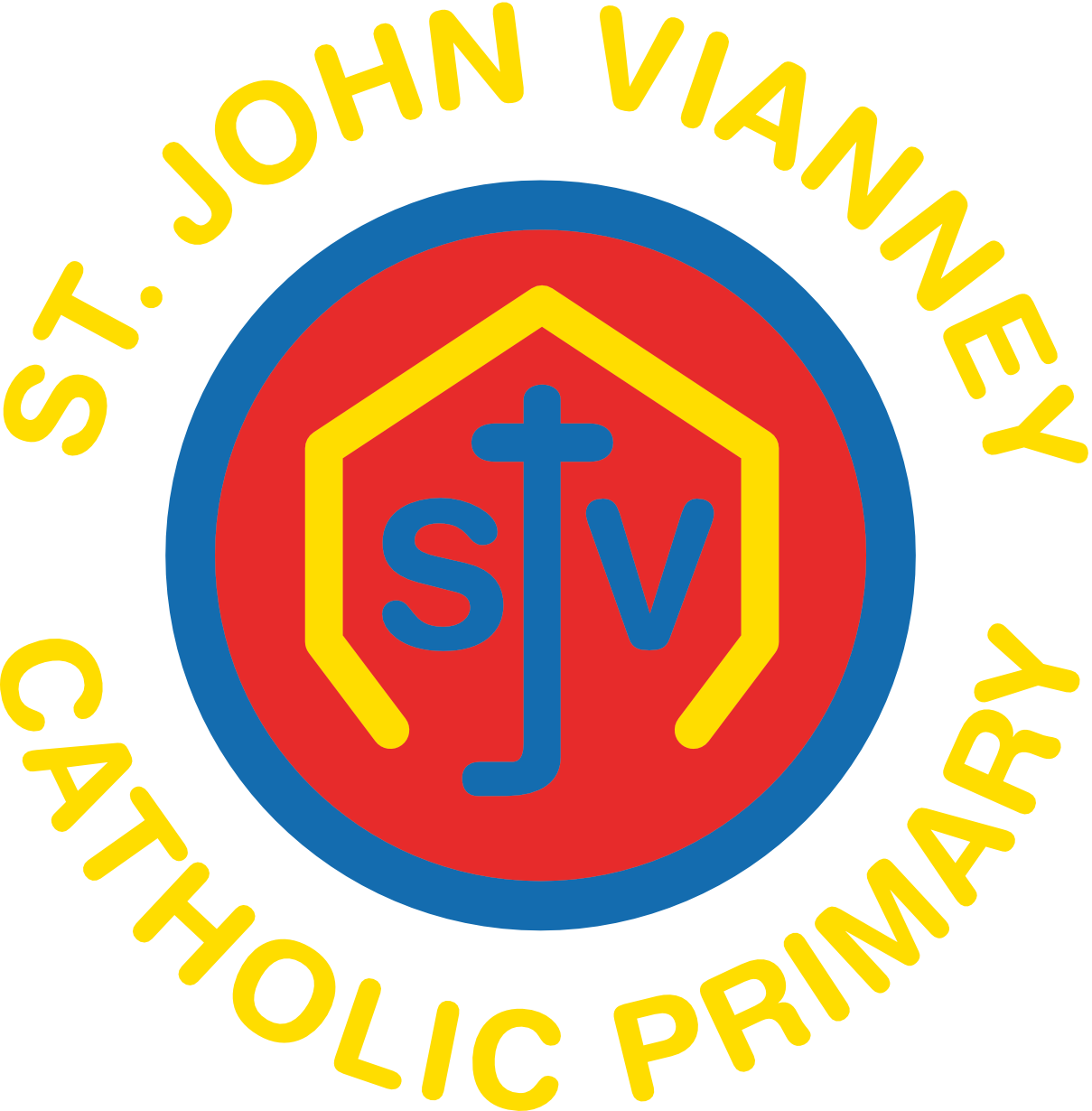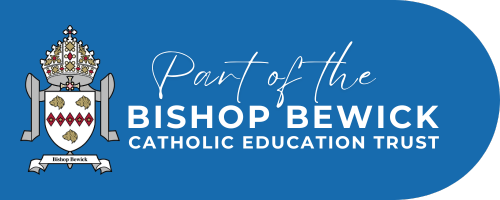
PSHE & RSE
PSHE & RSE
At St John Vianney Catholic Primary school we aim to ‘act justly, love tenderly and walk humbly with our God’. In God’s love and inspired by our faith, we always show kindness and respect to other, whilst working as hard as we can, to be the best that we can be.
We work together to:
Appreciate that we are all uniquely created and loved by God.
Nurture, in our whole school community, an understanding of Christian values and how they help shape our lives and the lives of others.
Understand the importance of forgiveness and reconciliation.
Provide an excellent education and positive learning environment so our children realise their potential and have pride in their achievements.
Encourage our children to participate fully and take responsibility for their learning, and to persevere, develop as resilient and independent learners, learn through their mistakes and always try to do their best.
Value and build respectful relationships, bringing together staff, pupils, parents and our local community with shared goals and aspirations.
Be mindful of everyone’s wellbeing and to care for one another in a happy, welcoming and nurturing community.
To provide equal opportunities for all regardless of religion, gender, ethnicity or ability.
Prepare our children for life, and work, in modern day Britain.
Be Ready…Be Safe…Be Respectful…
INTENT:
Rationale
‘I have come that you might have life and have it to the full’
(John 10:10)
We are involved in PSHE, including RSE, because of our Christian beliefs about God and about the human person. The belief in the unique dignity of the human person made in the image and likeness of God underpins the approach to all education in a Catholic School. Our approach to PSHE and RSE is therefore rooted in the Catholic Church’s teaching of the human person and presented in a positive framework of Christian ideals.
Following the guidance of the Bishops of England and Wales and as advocated by the DfE, Relationships and Sex Education will be firmly embedded in the Relationships and Health framework as it is concerned with nurturing human wholeness and integral to the physical, spiritual, emotional, moral, social and intellectual development of pupils. It is centred on Christ’s vision of being human as good news and will be positive and prudent, showing the potential for development, while enabling the dangers and risks involved to be understood and appreciated.
All Relationships and Sex education will be in accordance with the Church’s moral teaching. It will emphasise the central importance of love and family and acknowledge that all pupils have a fundamental right to have their life, including their individual family set up, respected and valued.
To develop the following attitudes and virtues:
Respect for the dignity of every human being
Joy in the goodness of the created world and their bodies
Responsibility for ones actions and the recognition of the impact of these on other
Recognising and valuing their own sexual identity and that of others
Celebrating the gift of life long love
Recognising the importance of family life
Recognise that bullying, in any form, is wrong and a united approach should be taken to ensure the safety of all pupils, staff, families and the people in our wider community
Reinforce and promote the fundamental British Values in all aspects of school life
To develop the following personal and social skills:
Making sound judgements and good choices including those regarding our health and wellbeing
Loving and being loved, and the ability to form and maintain friendships and loving, stable relationships
Managing emotions within relationships including when relationships break down
Managing conflict positively, recognising the value of difference
Cultivating humility, mercy and compassion, learning to forgive and be forgiven
Developing self-esteem and confidence, developing self-respect and empathy for others
Building resilience and the ability to resist unwanted pressures, recognising the influence and impact of media, internet and peer groups
To develop the following knowledge and understanding:
The centrality and importance of virtue in guiding human living and loving
The physical and psychological changes that accompany puberty
The facts about human reproduction
Develop an understanding of Human Rights including the UN convention on the rights of the child
Develop a growing understanding of democracy, democratic Britain and the role of Parliament
Explore a variety of career opportunities and the different routes into these careers
Develop an awareness of stereotypes and how issues around stereotypes can be challenged
Inclusion and Adaptive Teaching
We will ensure that our PSHE curriculum, including RSE, is sensitive to the different needs of individual pupils in respect to pupil’s abilities, levels of maturity and personal circumstances in a way that does not subject pupils to discrimination. Lessons and opportunities will also help children realise the nature and consequences of discrimination, teasing, bullying and aggressive behaviours (including cyber-bullying), use of prejudice-based language and how to respond and ask for help. Adaptive teaching techniques will ensure lessons engage and are inclusive to all children including those with SEND.
Equalities Obligations
The governing body have wider responsibilities under the Equalities Act 2010 and will ensure that our school strives to do the best for all of the pupils, irrespective of disability, educational needs, race, nationality, ethnic or national origin, pregnancy, maternity, sex, gender identity, religion, or sexual orientation or whether they are looked after children.
Broad content of PSHE, including RSE
Three strands of our school PSHE curriculum – Health and Wellbeing, Relationships and Living in the Wider World will be provided in three inter-related ways: the whole school ethos; a cross curricular approach and a discreet PSHE curriculum.
IMPLEMENTATION:
Programme/Resources
Our school PSHE curriculum was developed in conjunction with the DfE Statutory Guidance for Relationships and Sex Education and Health Education, PSHE Association Programmes of Study and Diocesan Guidance for RSE and Health Education. Our curriculum maps are regularly updated to reflect and respond to issues in the context of our school and local area and are responsive to the needs of individual pupils and cohorts. Adaptations to our curriculum also include the introduction of new resources, experiences and opportunities to ensure our PSHE provision is varied, fresh and engaging for our children. Resources include:
Come and See (RE curriculum)
Ten:Ten (Life to the Full)
Kapow
UNICEF – Rights Respecting
CAFOD
Science Curriculum
Whole School PSHE Annual Map of visitors, experiences, awareness days/weeks
Anti-Bullying Alliance
National Careers Week Resources
Variety of Texts
English Curriculum
PE Curriculum
History Curriculum (Black History Month)
IMPACT:
Assessment and Evidencing PSHE, including RSE
Assessment refers to gauging what has been learned and what still needs to be learned. It is important for pupils to have opportunities to reflect on their own learning and for teachers to feel confident that learning has taken place, to demonstrate progress and to identify future learning needs. Assessment increases pupil motivation and improves learning, as their awareness of their own progress and development illustrates the value of their learning. Personal attributes are arguably the hardest aspects of learning to assess. It is difficult to accurately assess a pupil’s self-confidence or sense of their own identity and values. However, pupils themselves will be able to judge, for instance, whether they feel more confident, or have a firmer sense of their own beliefs and opinions that they did before a particular series of lessons. Therefore, assessing learning in PSHE education at our school uses a combination of teacher assessment and pupil self-assessment. Ipsative assessment compares where a pupil is at the end of a lesson or series of lessons against where they were before the lessons. 5
Evidence will be recorded in class floor books, cross curricular (English, Science, RE books) and using a class assessment tracking tool.
Evidence can also be found in the following:
School council meetings
Forest school timetable
Mini Vinnies
Themed weeks/day calendar
Displays around school
Pupil voice records
Eco activities
Year 6 Faith in Action
Anti-Bullying Alliance Award
Year 6 Residential
CULTURAL CAPITAL:


